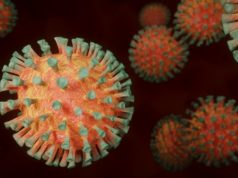 More than 850 million people worldwide are living with kidney disease and are particularly affected by disastrous events as their ability to access appropriate care, complex and multi-faceted in nature, may be hindered.
More than 850 million people worldwide are living with kidney disease and are particularly affected by disastrous events as their ability to access appropriate care, complex and multi-faceted in nature, may be hindered.
“The COVID-19 pandemic has highlighted the challenges faced by healthcare systems to provide essential health services and a policy deficit in managing consistent access to care. As the number of disastrous events has increased in recent years, it is essential to ensure safe, sustainable, and continuous health services for those in need of lifelong ongoing complex treatments, such as people living with kidney disease,” jointly stated Agnes Fogo, president of the International Society of Nephrology (ISN) and Latha Kumaraswami, president of the International Federation of Kidney Foundations–World Kidney Alliance (IFKF–WKA) which together lead the World Kidney Day (WKD) campaign.
On 9 March 2023, the World Kidney Day call to action is “Kidney Health for All: Preparing for the unexpected, supporting the vulnerable!” This call to action is for the whole of society, including policymakers, healthcare services, governments, industry, as well as people living with kidney disease and their carers, to be well prepared for unexpected events to avoid any disruption in access to diagnosis, treatment, and care. “Having a plan of action for the management of patients in continuing care and a response plan for any future events that could result in disruptions of patient care delivery, will improve the efficiency of public health services in times of crisis,” advises Alessandro Balducci, co-chair WKD Joint Steering Committee for IFKF-WKA, based at the Italian Kidney Foundation in Italy.
“The responsibility lies at all levels of care, with an imperative to be systematic and collaborative. Governments must develop and implement adequate policies to provide a framework for adaptive, robust, and resilient healthcare systems to function optimally for all patients during emergencies and recovery, supported by healthcare services, NGOs and the community. Engaged and prepared patient cohorts, integral to planning, is also critical.” adds Robyn Langham, co-chair of the WKD Joint Steering Committee for ISN, based at the University of Melbourne in Australia.
A WKD press release states: “In the wake of the COVID-19 pandemic, it is even more important that we work to include kidney disease in preparedness plans, pre-emptively highlighting the importance of providing business-as-usual ongoing care for kidney patients during unexpected times.”











